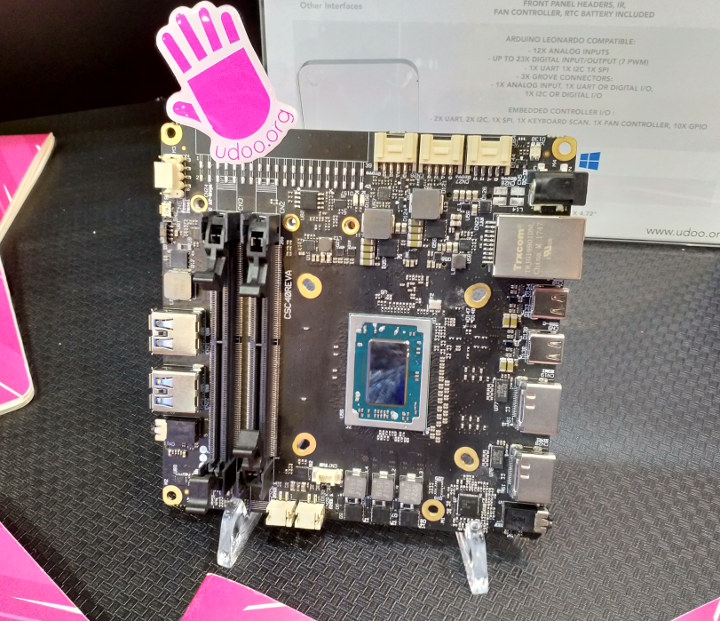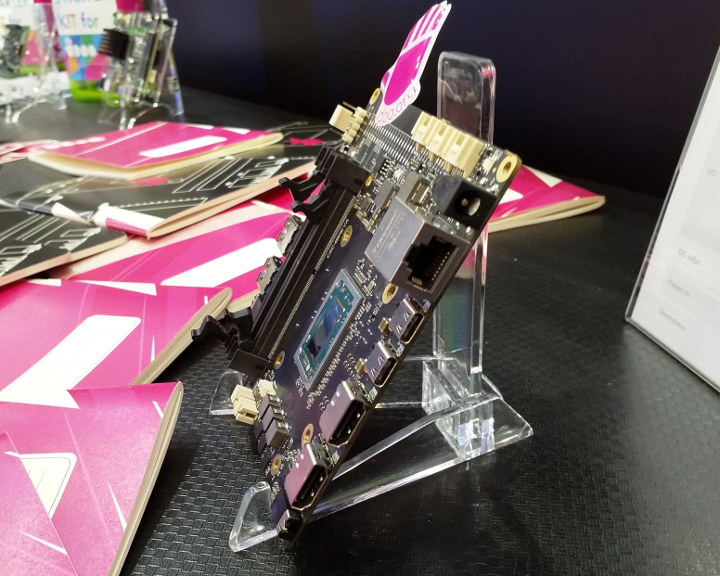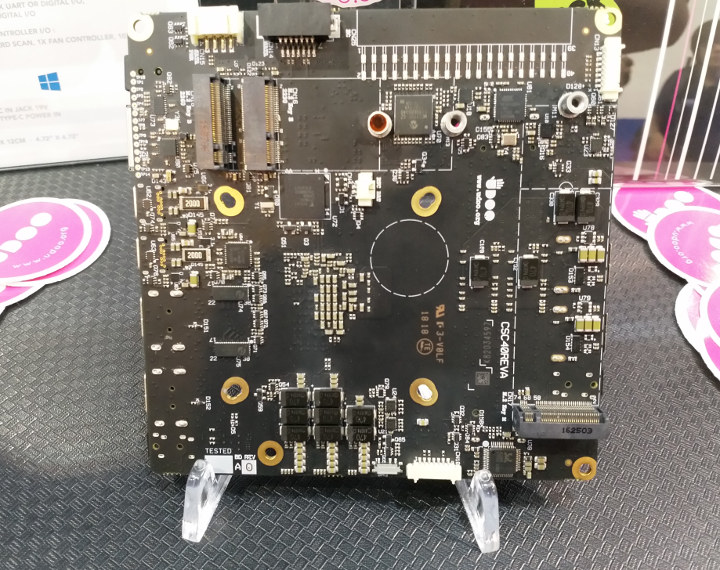The first AMD Ryzen Embedded V1000 development board – UDOO Bolt – was launched on Kickstarter last week, but for whatever reasons, the company did not provide close up photos of the board.
But luckily for us, TLS – regular reader & commenter, and occasional contributor for CNX Software – is now at Computex 2018 and spent some time at UDOO’s booth where he took time to take some photos and share with us.

The top view of the board shows the two SO-DIMM slots and Ryzen Embedded processor, as well as an better looks at the ports and headers around the boards.

The board should support up to 4 displays via its two HDMI 2.0a ports, and two USB type C ports with DP alternate mode. While, AMD Ryzen Embedded V1000 SoCs support 10 GbE, UDOO selected TRXCOM TRJG19901DNL Gigabit Ethernet jack, probably to keep costs under control.

The bottom side reveals the M.2 Key B 2260 socket for SATA SSD and M.2 Key E 2230 socket on the top left, and M.2 Key M 2280 slot for NVMe SSDs on the right side. Sadly the component names are a little hard to read, but the 32GB eMMC flash should be found right under the two M.2 slots, and the Microchip ATMEGA32U4 for the Arduino part on the top right just under the unpopulated embedded controller I/O header.

Jean-Luc started CNX Software in 2010 as a part-time endeavor, before quitting his job as a software engineering manager, and starting to write daily news, and reviews full time later in 2011.
Support CNX Software! Donate via cryptocurrencies, become a Patron on Patreon, or purchase goods on Amazon or Aliexpress




